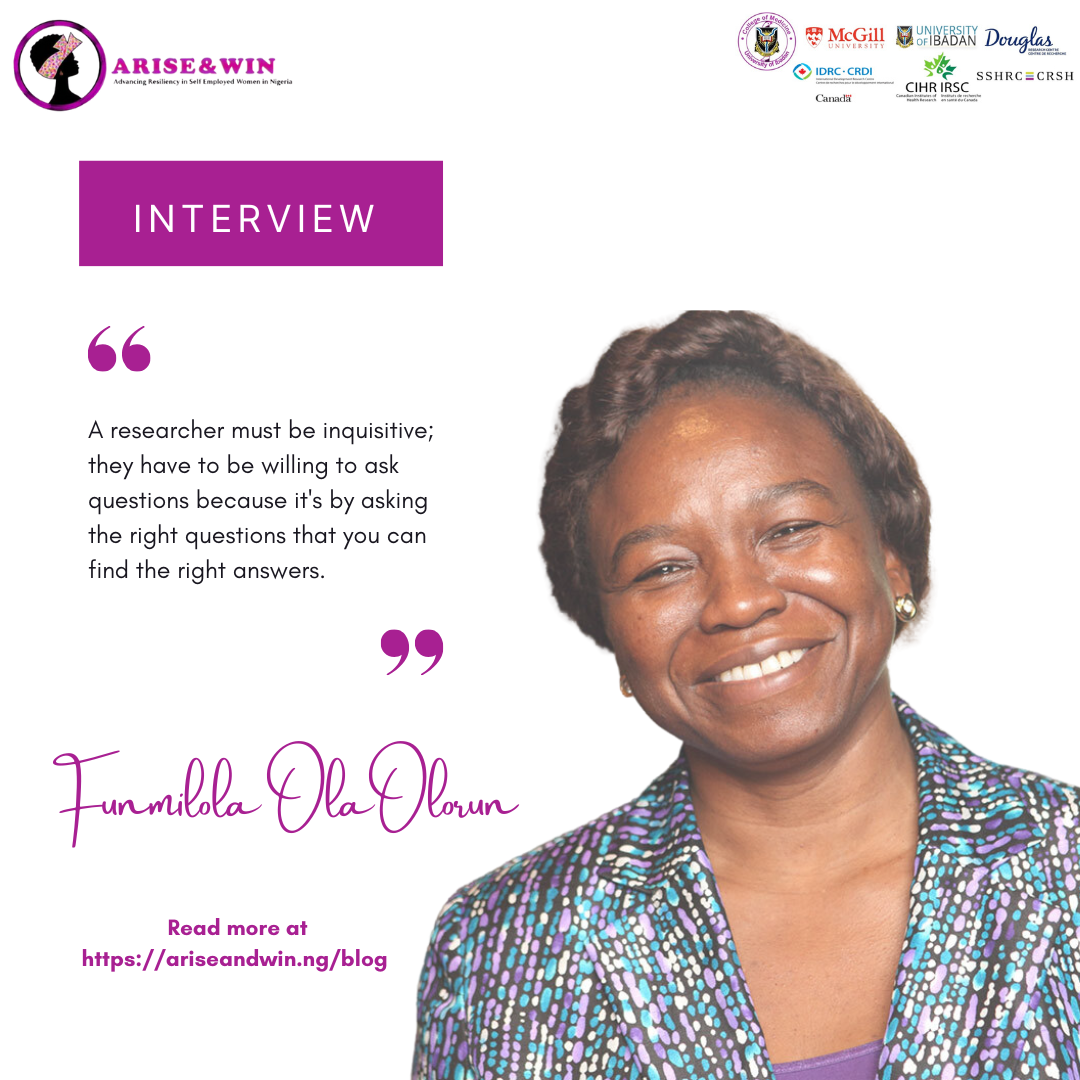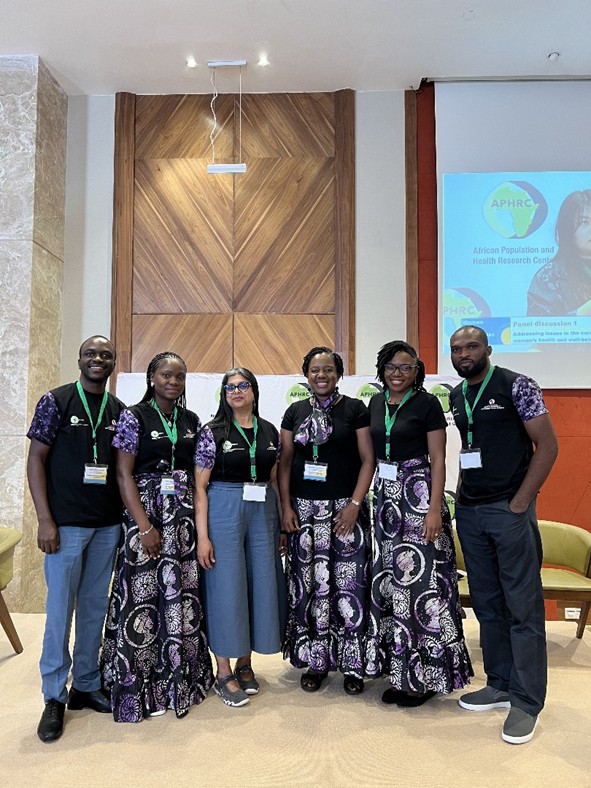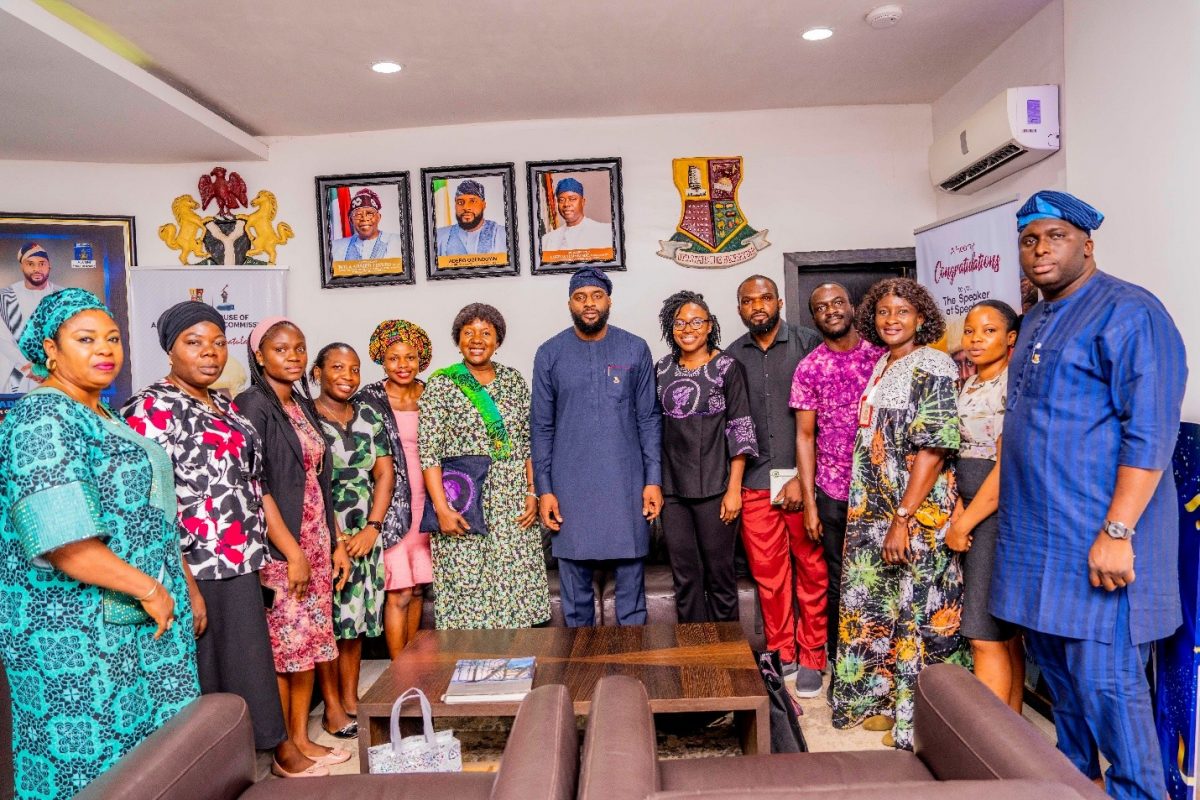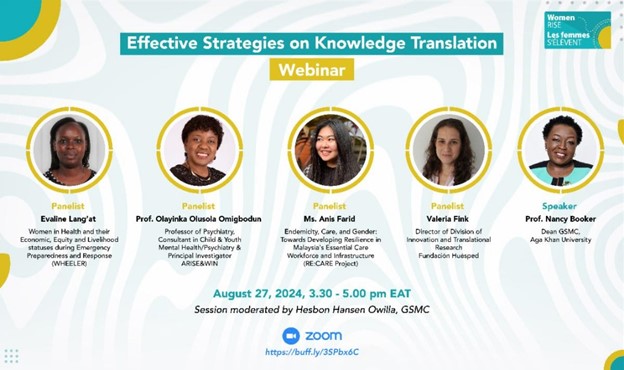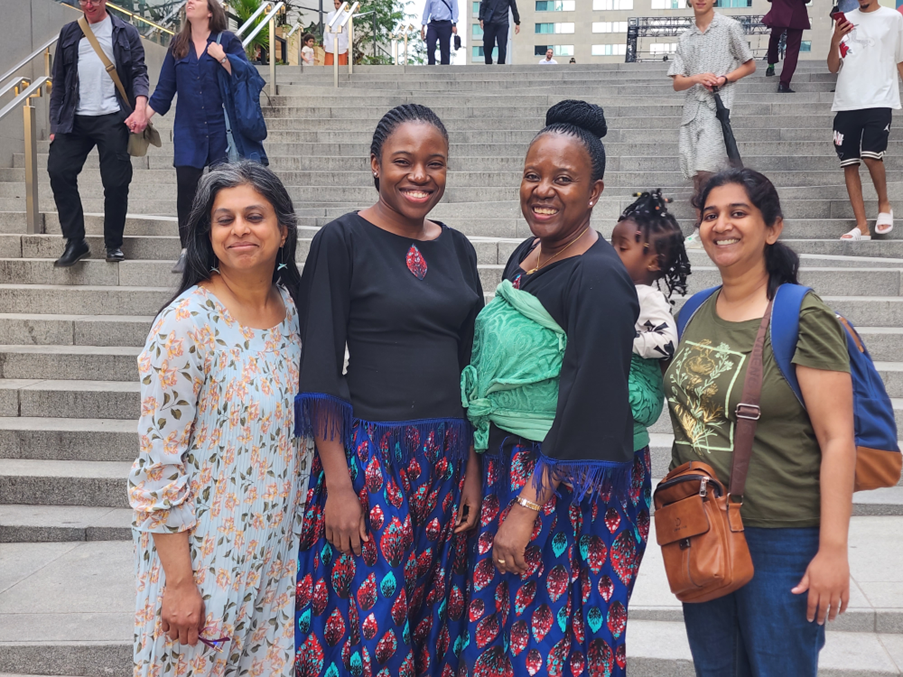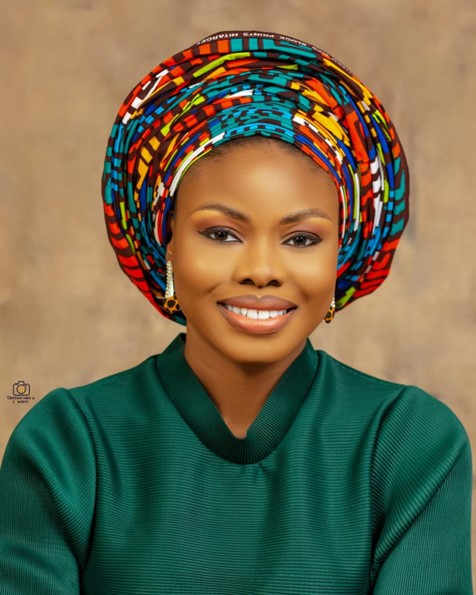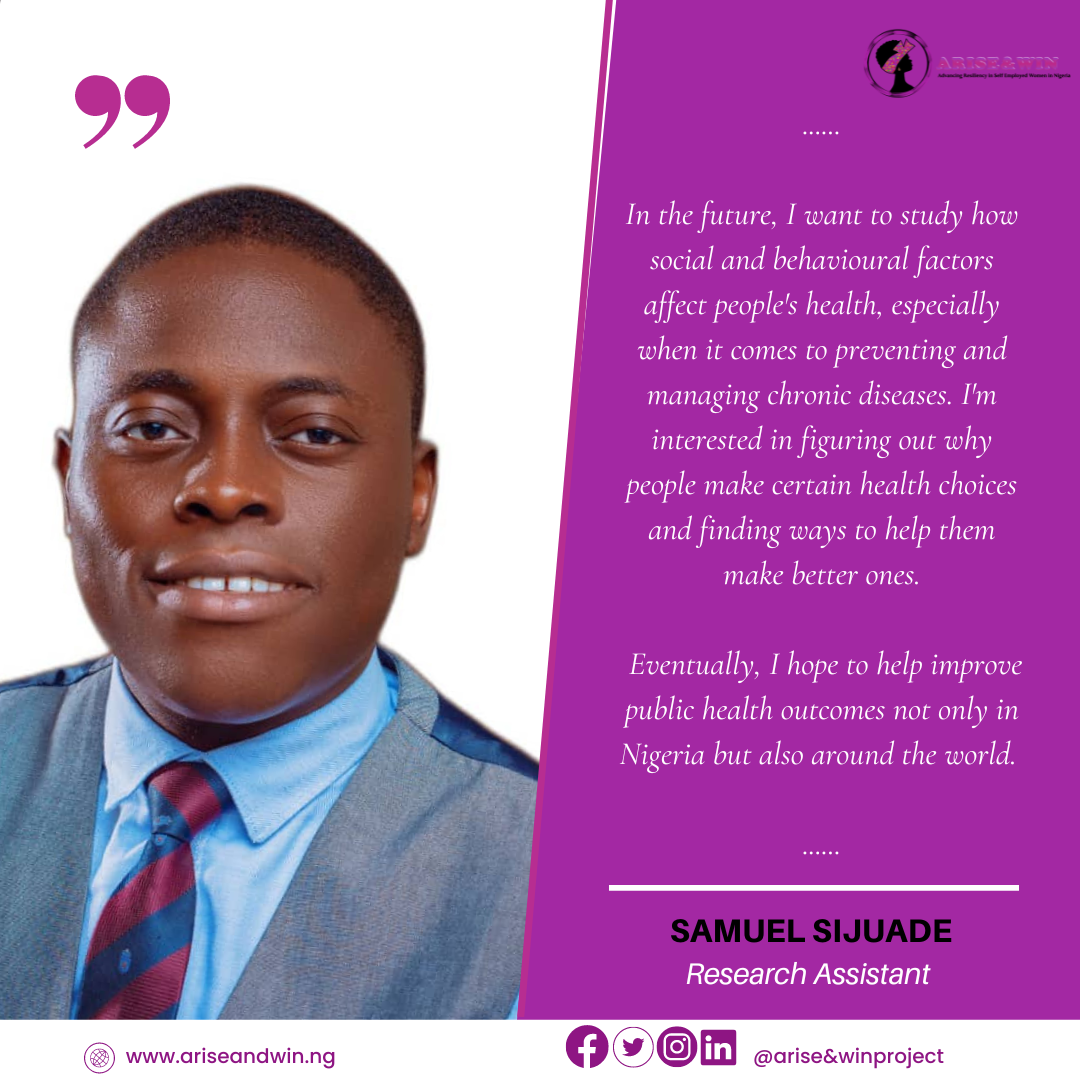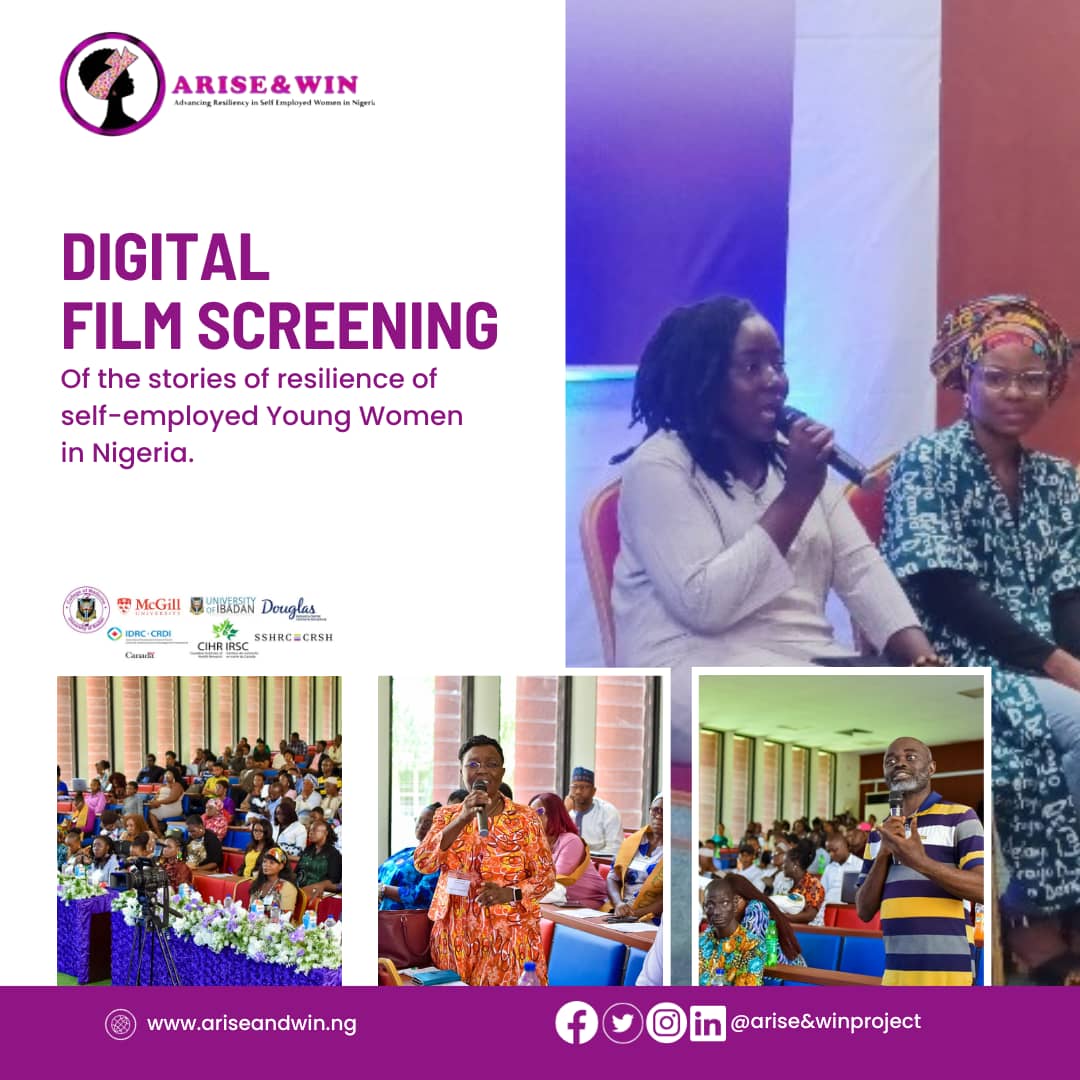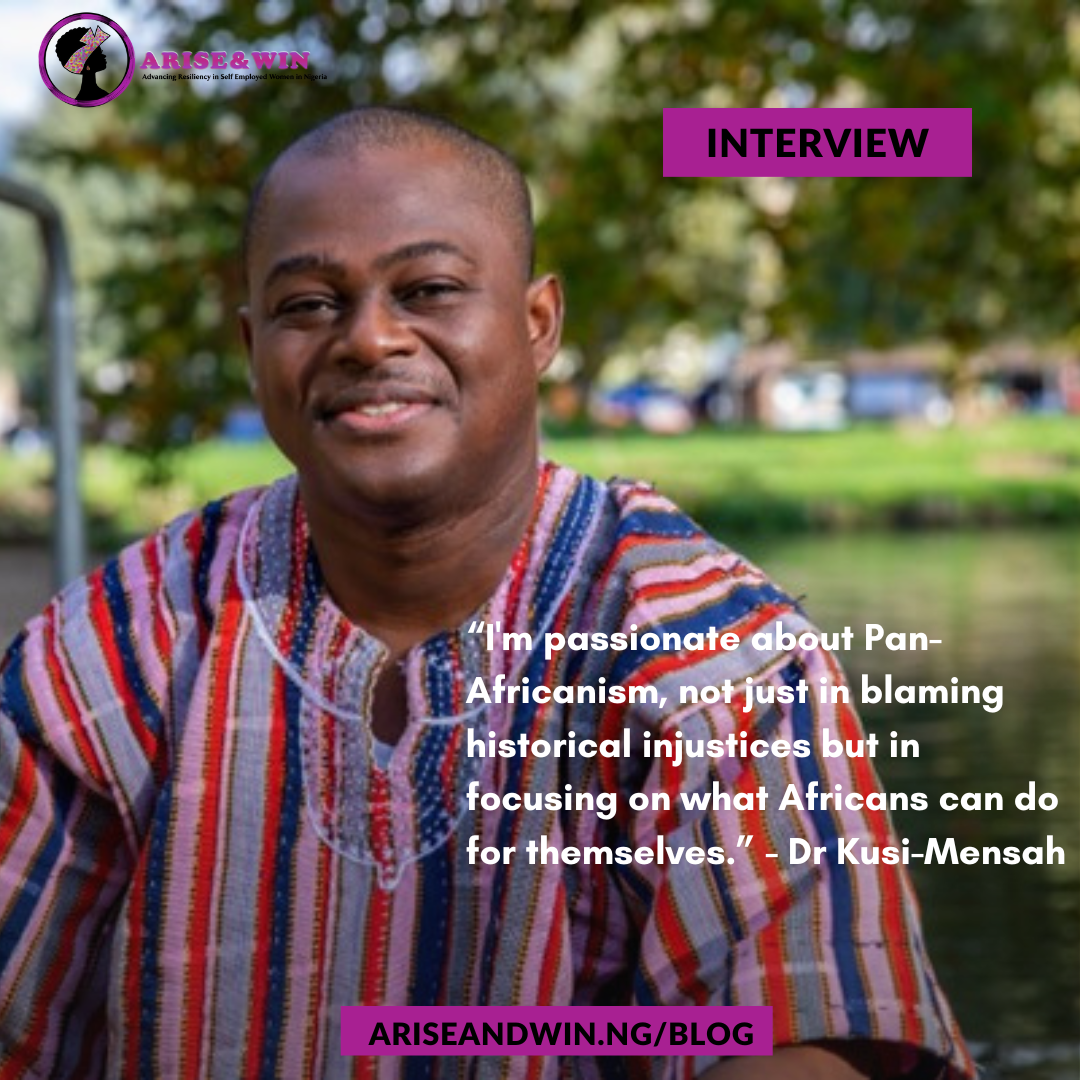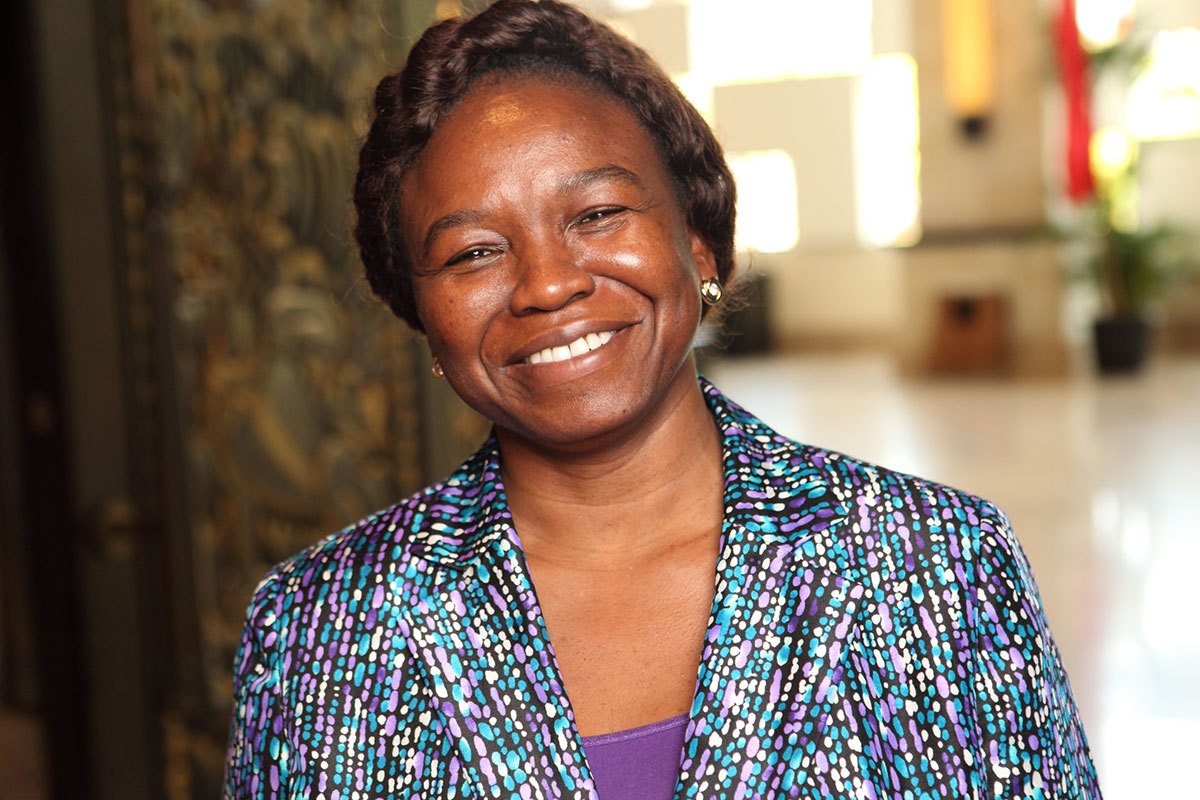
Our media team had a chat with the Consultant for our Qualitative and Policy Stakeholder Engagement Workstreams, Dr. Funmilola OlaOlorun, to explore her fascinating world as a community health researcher, a consultant on our project; her impactful policy engagements, and her unique journey as a dedicated physician and women’s health researcher. In this insightful conversation, Dr. OlaOlorun shares her experiences, projects, and valuable insights on the core qualities of a researcher, effective communication, and the art of bridging the gap between academia and real-world impact.
Dr. OlaOlorun, it’s a pleasure to sit with you. Could you start by introducing yourself?
Certainly, I’m Funmilola OlaOlorun, a community health physician and researcher based at the College of Medicine, University of Ibadan.
You’ve been doing research for how long now?
I have been doing research since 2007, when I joined the academic staff not counting my student research.
Could you share some projects you’ve worked on outside of your day-to-day work?
Of course, I’ve been part of various projects, but they often link back to my core work.
A lot of the work that I have done is focused on family planning and reproductive health. So, most of my activities and projects are centred around that. The research grants that I have been privileged to be a part of, either as a Principal Investigator or Co-Principal Investigator, have been focused on family planning and reproductive health.
Since 2014, I have been a Co-Principal Investigator on a project called Performance Monitoring for Action, and I have enjoyed working on the project even though it just involves annual data collection. I have been involved in all stages from contributing to the proposal, hiring staff, training the staff, supervising, and overseeing their work, to working with the data analyst to analyse the data and interpret the data with other principal investigators.
I have also been involved in a project on female empowerment, funded by the Bill and Melinda Gates Foundation. It was conducted here in Ibadan, and we looked at couples. We were interested in the involvement of women in decision-making. It was a randomized control trial that included three different intervention arms and a control arm. In the first arm, we provided gender socialization training for the couples, focusing on how boys are raised to become men and how girls are raised to become women. The second arm included both gender socialization and financial literacy training. The third arm was access to family planning, counselling and services. The poorest 20% of that group was given the opportunity for the project to pay for any expenses related to their access to family planning for the 6-month follow-up period.
That project wrapped up around 2015-2016.
Thank you for your response. Let’s talk about your role on the ARISE&WIN project. What do you do?
On the ARISE&WIN project, I am a consultant and I have been helping with two workstreams focused on policy and qualitative research. For the workstream focused on qualitative research, I was involved in providing feedback on the tools that have been developed by one of the post-doctoral fellows on the project. I also led the training of field workers who were preparing for in-depth interviews and focus group discussions. I provided a general overview of qualitative data collection and then we focused on in-depth interviews and focus group discussions. I provided tips and tricks that would be useful for them in the field in collecting the data. We had hands-on practice sessions during the training.
For my involvement in the policy workstream, I haven’t done much because our starting point is the end of another workstream. We have to start off knowing what the policy goal is, and another workstream is the one going through the literature and available policies, analysing and summarizing them. Until we have a report of what that workstream has done, we can’t do much because if that workstream did not exist, that’s where we would have started our work. Since there is another workstream taking care of that, we have to wait until they finish their work and provide a summary for us. It’s the gaps in the existing policies that will help us identify a policy goal. Once we identify a policy goal, we can then start talking about our audience, messages, how we are going to reach our primary and secondary audiences and finding out more information about them. All of this is ultimately to help us achieve our policy goal, which is yet to be identified because we are yet to receive a summary and analysis being done by this other workstream. However, so far, it’s been an enjoyable journey.
Really, can you share more about what excites you regarding the ARISE&WIN Project?
I think the ARISE&WIN study is a really exciting project, and I believe that the information obtained from qualitative interviews will provide insights into the lived experiences of young self-employed men and women. By understanding their experiences, we can co-design an intervention that will help them be better prepared for future challenges. The learning from this project can be applied to other groups as well. I look forward to what we will learn from the interviews, focus group discussions, and the co-design of the intervention. Regarding policies, I’m eager to learn more about the existing landscape and the gaps because the idea behind our policy goal is to see how we can address those gaps. It’s still early in the process to determine where this will lead us, but I am hopeful that it will be a game-changer and make a positive impact on the lives of self-employed young women and men.
This next question is more about your experiences as a researcher. On a scale of 1-5, what are the core qualities you think a researcher needs to have?
A researcher must be inquisitive; they have to be willing to ask questions because it’s by asking the right questions that you can find the right answers. They need to be hardworking and flexible, especially if they are female researchers with multiple responsibilities. Another important quality is the willingness to keep reinventing themselves and keep learning. The world is a global village, and researchers need to stay updated. Another key quality, closely related to asking questions, is the ability to learn from others. As community health physicians, we should ask questions that make a positive impact on the lives of others.
You are a very eloquent speaker and a sound teacher too. Could you share some tips on how you developed your communication skills and teaching ability?
Never stop learning, that’s the important thing. I feel like I have improved in the way I speak by listening to other speakers, particularly TED talks. I like observing how people who captivate audiences relay their messages. Observing these techniques has helped me improve my communication skills. I have also learned that listening is often more profitable than speaking. By observing my environment and listening, when I do speak, people think I am smarter than I am because I have assessed the environment before speaking.
What are interesting things about you that one won’t find on your CV or your professional experience?
I like the colour purple. When I was young during our family bible study, my father said that purple is for Kings and Queens. That’s what drew me to the colour purple. Most ladies like heels, but I prefer flats for comfort. In general, I think I am a quiet person. I don’t speak that much if I don’t have to. When I was in elementary school, I used to play a game in my mind where I calculated how I could respond with the fewest number of words when asked a question. That was my favourite game as a child because I believed in saying only what was necessary.
Thank you very much for the opportunity. I have always admired you since the time you were training us. Could you provide some advice for upcoming researchers?
My advice for upcoming researchers is to envision where you see yourself in 5, 10, 15, and 20 years, and then work backwards. Not everyone needs a master’s or a Ph.D. If you’re interested in fieldwork, and mingling in the community, and you’re not necessarily aiming for academia, you may not need a PhD. If you want to work with international NGOs, a Doctor of Public Health (DrPH) might be more suitable for certain technical skills than a Ph.D.
Consider what skills and knowledge will be relevant in the future, not just in the present. To be successful, leave your comfort zone, and talk to people outside your field and network. Learn from others and think about the problems that will be relevant in the future. Being ahead of the game can set you up for a successful and impactful career.
Lastly, could you provide an overview of your work at the College of Medicine and your role as a community health physician?
Certainly. We are clinicians; all the academic staff [in my department] are medical doctors. Our department is situated in two faculties, the Faculty of Clinical Sciences, and the Faculty of Public Health. We are also honorary consultants at the University College Hospital. We teach medical students at various stages, covering topics related to public health, community medicine, and more. We teach them during their community medicine postings before their medical exams.
We also teach other groups, like environmental health officers, nurse tutors, and community health officers. Our research areas cover various topics, and we guide medical students in finding research topics for their rural postings. We also guide master’s and Ph.D. students through their research. In terms of clinical service, we work in clinics at UCH, run the Kola Daisi Foundation Clinic in Yemetu, Ibadan and have an inner-city clinic in Idikan, Ibadan. We also work in infant welfare clinics and sexually transmitted infections clinics. Our department is involved in community service, including outreach programs.
Thank you for your time with us, ma.
Thank you for the opportunity to share my experiences and insights!
